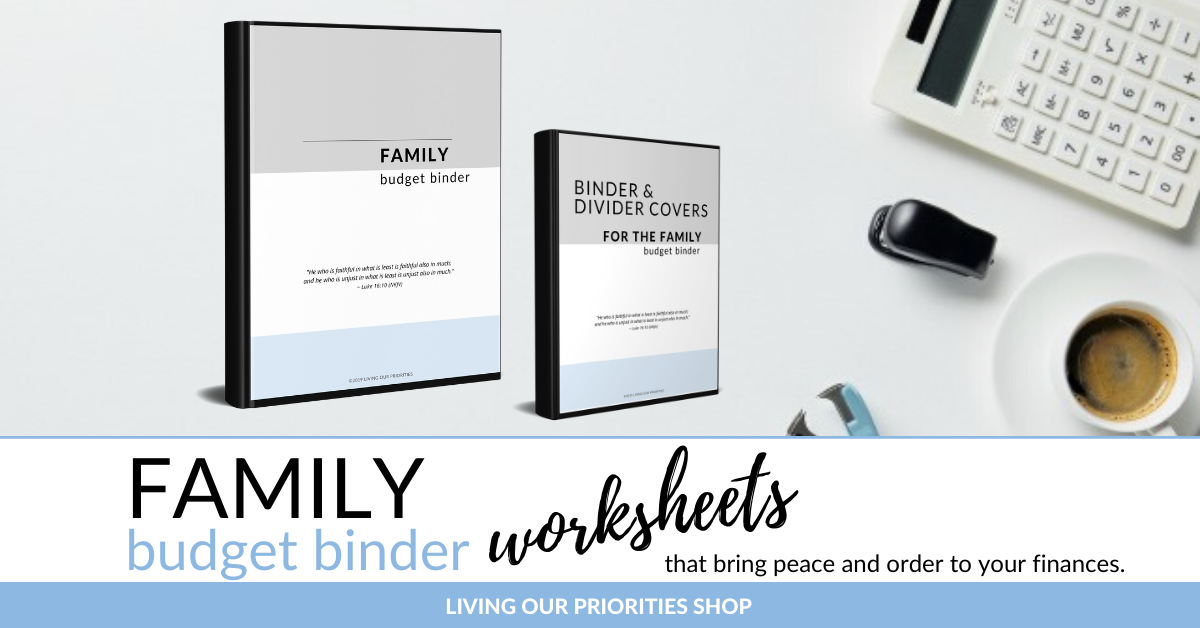Weekly Budget Meetings [How + Why You Should Have Them]
Before we started doing weekly budget meetings 20 years ago, every month felt like a roller coaster ride (and not in a good way) when it came to our budget. We’d sit down together at about the 15th of every month and realize we had barely enough money left to get through the rest of the month. We didn’t remember what we had spent, if we had pulled any money from our budget envelopes during the month, and we weren’t always sure we would make it to the end of the month without being in the red.
It was a hot mess.
When were newlyweds, we spent more than we’d budgeted for and had no idea where we’d pull the extra money from. When we would go shopping for groceries each week, we had no idea how much money was actually there for us to spend. For months, we blamed our budget for not doing it’s job. However, the reality was we needed a new way of holding ourselves accountable. If this story sounded all too familiar, we have some help for you!
It is not enough to simply create a budget. If you struggle with sticking to a budget, then having weekly budget meetings with your spouse can literally transform you marriage and finances. You can’t leave it to chance and hope that you didn’t spend outside of your spending categories each month. Instead you need to sit down as a couple, pray, compose a budget, and revisit how you do each week on the prior week’s budget.

3 Steps to Starting a Successful Weekly Budget
1. Pick a Date and Time
Our weekly budget meetings take place every Sunday. We decided to schedule ours on Sunday so we could start each week with a fresh perspective on where we stand with our budget, and so we’ll know exactly what our food budget is for the week and can plan meals accordingly. Pick a day and time to sit down with your spouse, and make sure to commit to it. You’ll find that the “m” word (money) becomes less intimidating and frustration when you commit to discussing your finances.
2. Remove all Distractions
Make sure wherever you choose to hold your weekly budget meeting is free from any possible distractions. Don’t leave the TV on in the background, or have your meeting while one of you is busy doing something else. Make sure your cell phone is either off or set to silent and certainly do not be perusing social media when budgeting. For us we typically hold our budget meetings early in the morning before the children wake. This works perfectly for us. Find what works for you and stick to it!
3. Come to each Meeting Prepared
Prior to each meeting, we get our bill tracker, budget envelopes, our budget (if we’re thinking of making changes), expense trackers, a pen, and paper while one of us is looking up our bills and bank account balances. While one is searching for the numbers, one of us will pull any expenses that need to come out of our envelopes to have ready. We do this every week, and each of us knows what to do. Make sure each person knows what they are responsible for prior to each meeting. This will make them run more productively. Our weekly budget meetings usually only take 10-15 minutes.

The Benefits of a Weekly Budget Meeting
Since we have started our weekly budget meetings, we have felt more in control of our money and our budget. We are no longer scraping by at the end of the month or freaking out when we’ve run out of money halfway through the month. One of our goals early on in our marriage was to stay on budget every single month, and so far we have been able to stay on track with this goal (for the past 20 years) by doing these weekly budget meetings.
We always know how much money is in our bank account
One of the scariest parts of our budget used to be the fact that we never knew how much money we were working with till about halfway through the month. Since we’ve begun our weekly budget meetings, I always know exactly how much money I’m working with each week, and I know whether or not I need to adjust our budget. While looking at your bank account might be a scary thought, it’s not nearly as bad as not knowing whether or not you are overspending.
We know where we stand on our financial goals
As a couple, you should be creating short term and long term financial goals. During our weekly budget meetings, we also discuss where we stand on our short and long term goals. One of our big goals for this past year was to take our family on a 2-week long U.S. road trip. With 5 people to feed, get hotel rooms for, and two large dogs we had to pay to board, this isn’t exactly what you would call a cheap trip. However, through budgeting and living frugally we were able to make this dream a reality! During our weekly budget meetings, we would discuss how much money we still needed to save for our trip and how we were coming on these goals.
Sticking to our budget used one of the hardest parts of living on a budget for us, now it comes as second nature. Using weekly budget meetings to our advantage we always know whether or not we are on budget, and where we stand each week with our finances. If you don’t already do weekly budget meetings with your significant other, give it a try and see what happens.








